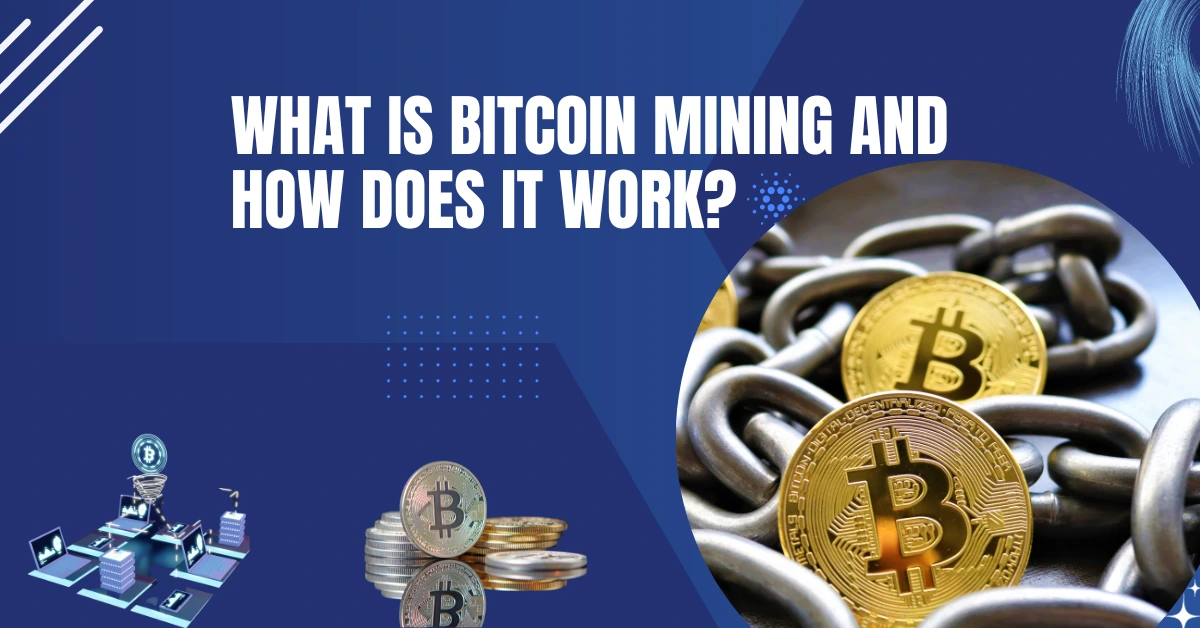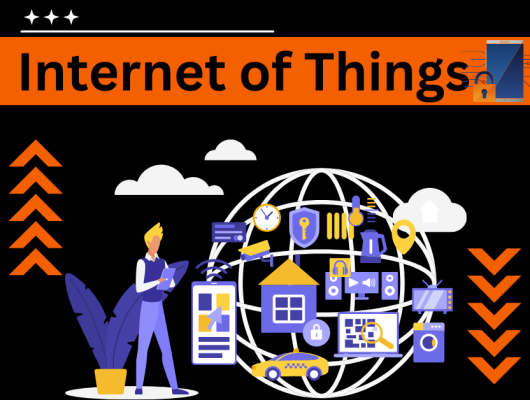Introduction:
The first decentralized digital money in history, Bitcoin, has completely changed the financial industry. The fundamental mechanism of this innovative technology is Bitcoin mining, which compensates miners with more Bitcoins in addition to safeguarding the network. The nuances of Bitcoin mining will be covered in detail in this extensive book, along with information on how it operates, how profitable it is, how to get started, possible risks, tax ramifications, and answers to commonly asked questions.
Blockchain beyond cryptocurrencies, finding applications in various sectors. It’s a distributed ledger technology, offering transparency and security. From supply chain management to healthcare, blockchain revolutionizes data tracking and validation, ensuring trust and efficiency. While blockchain’s most renowned application is Bitcoin mining, it’s just one of many innovative uses for this technology.
Understanding Bitcoin
It’s important to comprehend the basic ideas underlying Bitcoin before getting started with mining. In 2009, a person or group going by the name of Satoshi Nakamoto created Bitcoin, a decentralized digital money that runs on a peer-to-peer network. Transparency and security are guaranteed by the public ledger known as the blockchain, which records transactions.
Bitcoin mining is used to support the proof-of-work (PoW) consensus mechanism, which is necessary for Bitcoin transactions. By resolving challenging mathematical riddles, adding transactions to the blockchain, and receiving payment in the form of Bitcoins for their labors, miners verify and secure transactions.
How Bitcoin Mining Works
The process of adding confirmed transactions to the blockchain and guaranteeing the network’s integrity and security is known as bitcoin mining. This is a detailed explanation of how it operates:
Transaction Validation:
A transaction that a Bitcoin user starts is announced to the network. To make sure these transactions are genuine and haven’t been spent before, miners gather and confirm these transactions.
Creating a Block:
A block consists of all valid transactions in that group. Approximately every 10 minutes, a new block with a list of transactions awaiting addition to the blockchain is created.
Proof-of-Work:
Miners compete to use the transactions in the block to solve a challenging mathematical puzzle. This is a computationally demanding and energy-intensive process. The solution is broadcast to the network by the first miner to solve the challenge.
Consensus:
If the solution is accurate, other miners validate it and approve the addition of the new block to the blockchain. The agreement of more than half of the network’s processing capacity results in this consensus.
Block Reward:
In addition to transaction fees from users, the miner who successfully adds the block to the blockchain receives a predetermined quantity of freshly minted Bitcoins (currently 6.25 BTC every block). Miners are encouraged to keep safeguarding the network by this.
Repeat:
Miners are in competition to validate and add new transactions to the blockchain as the process goes on.
Is Bitcoin Mining Profitable?
The profitability of Bitcoin mining depends on several factors:
Mining Difficulty:
The mining difficulty is adjusted by the Bitcoin network roughly every two weeks in order to keep block creation times under ten minutes. The difficulty rises as more miners join the network, making mining more difficult and less profitable.
Electricity Costs:
Significant processing power is needed for mining, which results in high electricity usage. Your region’s electricity costs have a big impact on your profitability.
Mining Equipment:
A key factor is the kind of mining hardware you utilize. Although they can be pricey, ASIC (Application-Specific Integrated Circuit) miners are more efficient than conventional CPUs or GPUs.
Pool Mining:
Joining mining pools allows many miners to pool their computing power and split earnings. Although there is a shared benefit, this can offer a more consistent source of income.
Bitcoin’s Price:
The profitability of mining is directly impacted by the price of Bitcoin. The value of the mining incentives rises with the price of Bitcoin.
Maintenance Costs:
Profitability may be impacted by the upkeep and sporadic replacement of mining equipment.
In general, mining Bitcoin can be beneficial for certain people, but it’s crucial to weigh all the expenses and advantages to decide if it makes sense for you in your particular situation.
How Do You Start Bitcoin Mining?
Starting Bitcoin mining involves several steps:
Get the Right Equipment:
Select the proper mining equipment. For mining Bitcoin, ASIC miners are the most effective; nonetheless, do your homework and choose hardware that fits your needs and budget.
Select a Mining Pool:
Participate in a mining pool to improve your chances of getting prizes on a regular basis. Slush Pool, Antipolo, and F2Pool are a few well-known mining pools.
Install Mining Software:
Install mining software such as Bit Minter, BFGMiner, or Combiner, depending on your hardware.
Create a Bitcoin Wallet:
In order to receive and save your money, you will require a Bitcoin wallet. Select a safe wallet, such as an Electrum software wallet or a Ledger Nano S hardware wallet.
Configure and Start Mining:
Set up your mining program me to establish a connection with the selected mining pool. To get incentives, enter the address from your wallet. After setting up, launch the mining program me.
Monitor and Optimize:
Pay attention to the hardware performance, electricity expenses, and your mining operation. Make the required changes to optimize profitability.
Risks of Bitcoin Mining:
While Bitcoin mining can be profitable, it comes with certain risks and challenges:
Volatility:
The volatility of Bitcoin’s price is substantial. The ROI on your mining equipment and your profitability may be impacted by a substantial decline in the value of Bitcoin.
Regulatory Challenges:
Different nations have different legal and regulatory frameworks for cryptocurrency and mining. Regulation changes may have an impact on your tax liability or your capacity to mine.
Competition:
The network becomes more competitive as more miners join, making it harder to mine new blocks and earn rewards.
Hardware Depreciation:
The network becomes more competitive as more miners join, making it harder to mine new blocks and earn rewards.
Electricity Costs:
Increasing electricity bills might reduce your earnings, particularly in places where energy costs are high.
Security Risks:
Hardware and software used in mining can be compromised by hackers. Making sure your mining business is secure is essential.
Taxes on Bitcoin Mining
The tax consequences associated with mining Bitcoin can differ based on where you live and how you go about doing it. In general, keep the following points in mind:
Income Tax:
The money you get from mining is taxable in many countries. This is income that you will need to record and pay taxes on.
Capital Gains Tax:
When you eventually sell the Bitcoins you earn and keep onto them, you might have to pay capital gains tax if their value increases.
Deductions:
Certain mining-related costs, like electricity bills and equipment acquisitions, might be deductible. To find out which precise deductions are available in your area, speak with a tax professional.
Record Keeping:
For tax reporting purposes, you must keep complete records of all of your mining activity, including transactions and expenditures.
Regulatory Compliance:
Make sure you are adhering to all applicable local and federal tax laws. It’s important to stay informed as the cryptocurrency regulatory landscape changes.
Conclusion:
A key element of the Bitcoin mining is in charge of safeguarding the blockchain and verifying transactions. Potential miners should carefully evaluate aspects such as equipment costs, electricity prices, and the volatility nature of cryptocurrency markets, even though it can be profitable. A more steady income stream may be obtained by joining a mining pool, and tax compliance is essential to stay out of trouble with the law.
It’s important to learn about the benefits and drawbacks of Bitcoin mining, just like with any other investment. Being knowledgeable is essential to succeeding in the fast-paced and fascinating world of cryptocurrencies, as the terrain is always changing.
FAQs:
What is Bitcoin mining’s primary purpose?
The main goals of mining bitcoins are to verify and validate transactions on the network and to produce new bitcoins, which preserves the blockchain’s security and integrity.
How long does it take to mine one Bitcoin?
The processing power of the mining hardware, the difficulty of the mining, and pure luck all affect how long it takes to mine one Bitcoin. A new block is mined around every ten minutes on average, and at the time of writing, the reward is 6.25 Bitcoins.
Can I mine Bitcoin with a regular computer?
In the past, Bitcoin could be mined using ordinary computers, but due to the network’s growing complexity, specialised hardware—like ASIC miners—is now necessary for mining to be competitive.
Is it too late to start Bitcoin mining?
Even while mining Bitcoin has become more difficult and competitive over time, it’s still possible to start at any time. It’s imperative to pay close attention to your spending plan, the cost of electricity, and the possible return on investment.
What is the environmental impact of Bitcoin mining?
The energy usage of bitcoin mining has generated discussion because of its effects on the environment. The procedure uses a lot of energy and frequently non-renewable energy sources. In an effort to allay environmental worries, several miners are investigating renewable energy options.
Are there alternatives to proof-of-work (Pow) mining for cryptocurrencies?
Indeed, a number of cryptocurrencies use consensus methods other than proof-of-work (PoW). For instance, Ethereum is moving towards a more energy-efficient proof-of-stake (PoS) architecture. Proof-of-authority (PoA), delegated proof-of-stake (DPoS), and other consensus techniques are used by other cryptocurrencies.
How can I stay updated on the latest developments in Bitcoin mining and cryptocurrency?
It’s critical to keep up with developments in the bitcoin field. To stay informed about the most recent advancements and trends, you can follow reliable cryptocurrency news sources, sign up for online forums, and take part in cryptocurrency communities.







